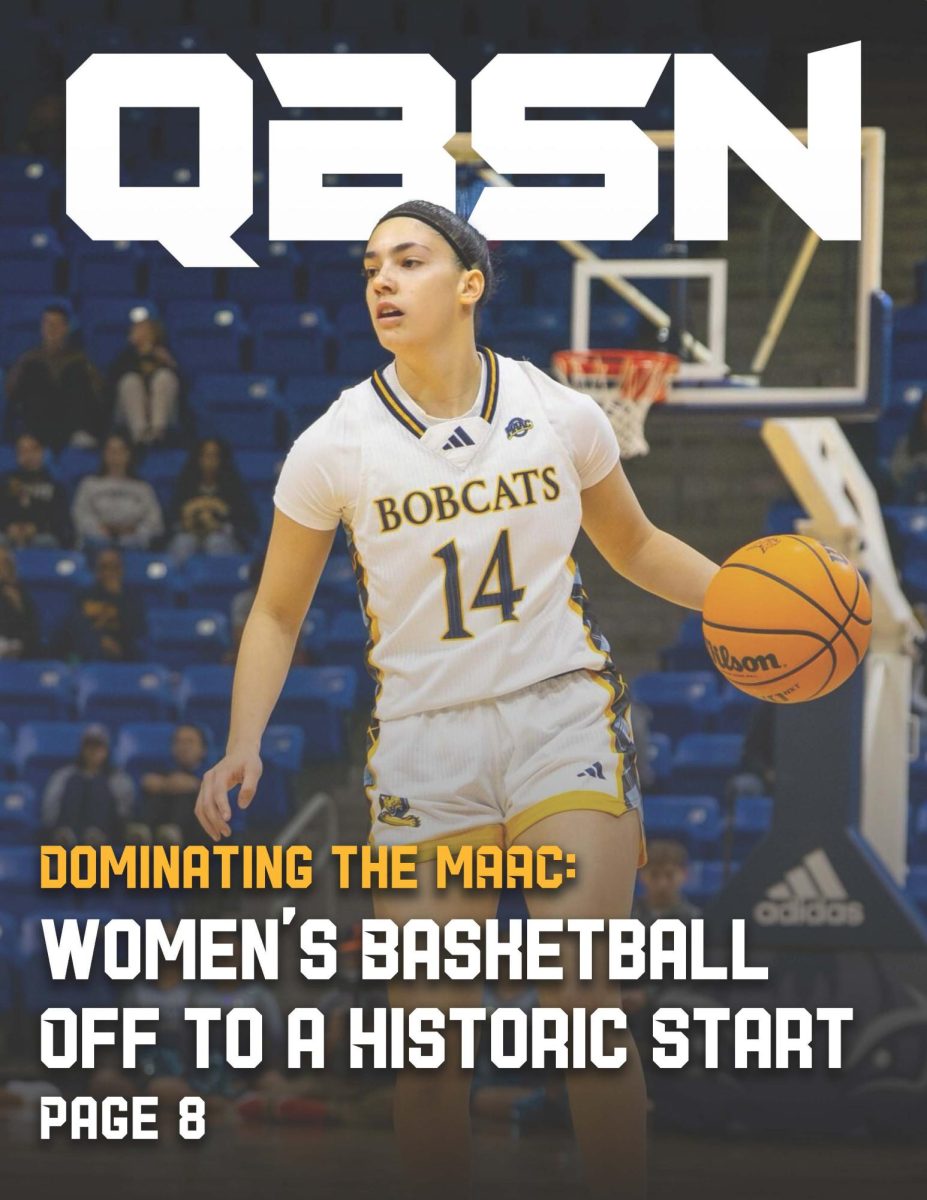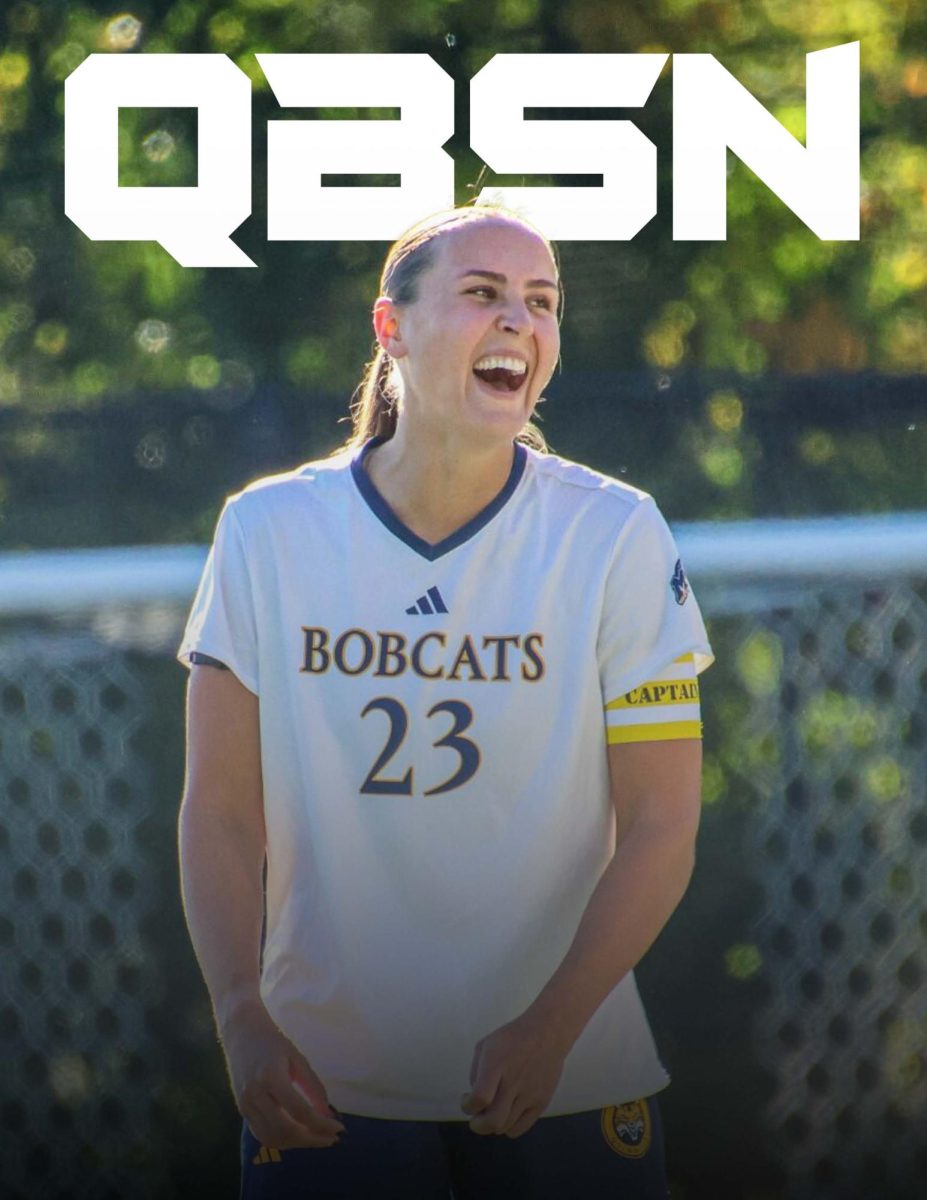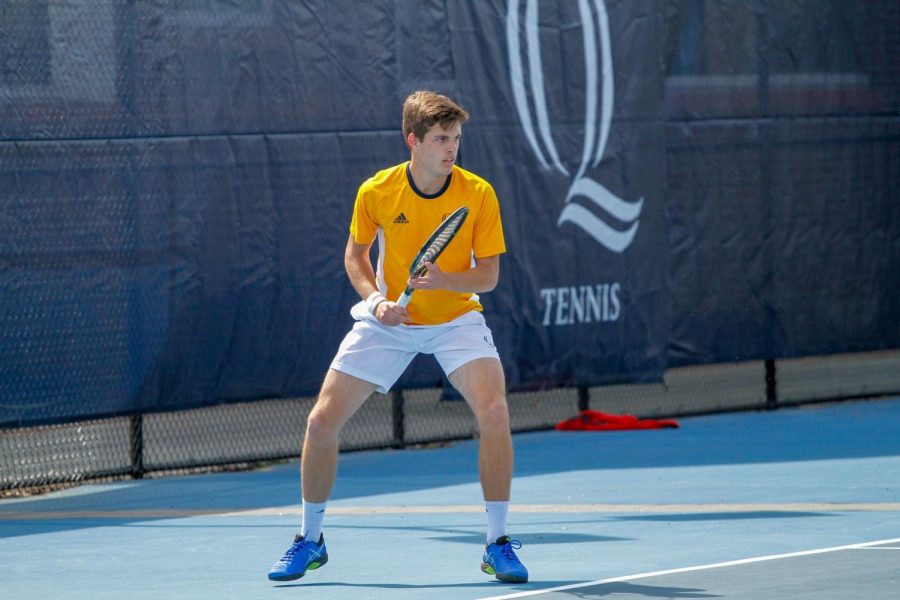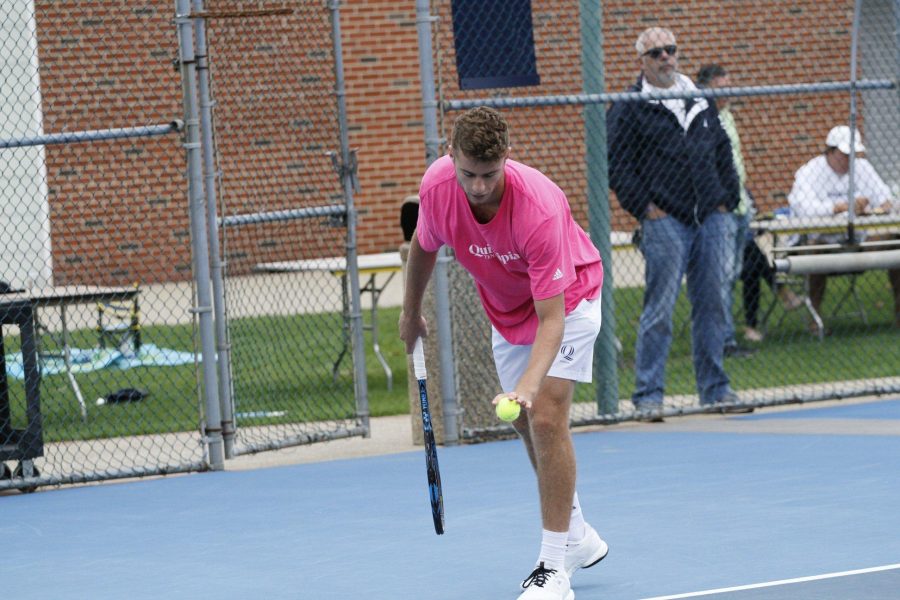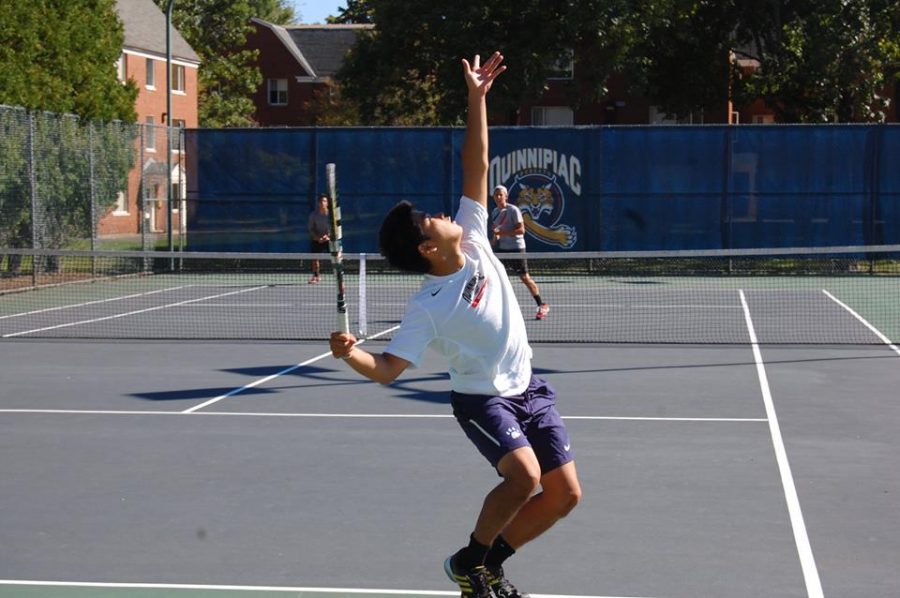Written by Brian Farrell, QBSN Staff Writer
Video produced by Austin Hopkins
Most juniors in college spend their time doing homework, checking Facebook and going to parties. Quinnipiac’s Fahoum Fahoum is trying to unite cultures. Fahoum transferred to Quinnipiac after spending the last three years playing tennis for Old Dominion.
[vimeo http://www.vimeo.com/54737971 w=500&h=281]
Fahoum Fahoum from Austin Hopkins on Vimeo.
Fahoum is a Palestinian Arab and a native of Haifa, Israel – a highly diverse city with both Arab Israelis and Jewish Israelis living in the same area. Fahoum holds a special place in Israeli tennis history as one of the first Arab Israelis to play for the Israeli national teams. In addition, when Fahoum was 14 he was ranked No.1 in Israel. His success has been met with great challenges as an Arab Israeli playing with and against Jewish Israelis.
Since an increase in hostility in the 20th century, there has been great friction between the two groups. Fahoum, just 21 years old, thinks he may have the answer to at least begin to unite the groups.
“I saw the potential for sports as a vehicle to promote communication, education and tolerance to ultimately achieve a healthy coexistence and better future,” Fahoum said. “You start small and see what happens. I’m trying as much as I can to inform more and more people. This is the problem nowadays, the lack of information. When you don’t know enough it creates so much bias and stereotypes so it is hard to communicate. When that happens it leads to fear and ultimately aggression.”
Fahoum says one of the biggest issues between the two groups is the lack of communication.
“It is difficult to start to communicate when you don’t have a common language,” Fahoum said.
“Sports, however is a common language. Everyone knows how to speak soccer or speak tennis.
“People know the rules and people come and have a common ground. When you have a common goal like winning, you start to forget where your partner is from, who he is and what his stereotypes are. You forget about everything and you work toward that common goal.”
Fahoum’s long term goal is to create an athletic preparatory school where both Israeli Muslims and Jewish Israelis will train at the highest level, not just in sports, but in coexisting. But for now, Fahoum wants to inform.
“That is why I am starting small, just one person at a time,” Fahoum said. “It doesn’t have to be hundreds of thousands of people, but every time I meet a person I try to let people know the potential of using sports to promote peace.”
One such person is Austin Hopkins a senior film major at Quinnipiac who created the video above.
“Through the interview process on camera, I learned way more than I thought I would,” Hopkins admitted. “I thought I was just going to be making a video about a kid from Israel who plays tennis. Then I found out that he and his mom founded a coexist program in Israel … ”
The outpouring of support that Fahoum has already gotten hasn’t surprised him
“Most of the reactions I get are ‘Oh my god, I want to be a part of this.’ Everyone wants to do good and when you promote good, people want to ride that train with you,” Fahoum said. “That makes me very happy when I speak to my friends or people at Quinnipiac and I share my beliefs … it lights something inside people because people want to see change.”
The world first saw what Fahoum and his family are doing in a 2009 Sports Illustrated article. Since that time, Fahoum has continued his dream to connect Muslims and Jewish Israelis.
“Right now it is all about information. I just want to inform as many people as I can about this cause,” Fahoum said. “Eventually I want to establish something physical, but right now I want to inform as many people as I can.”
Hopkins said that is where he wants to help and his video is the start.
“I want to create stories through video and the visual medium that will affect people and share stories of talented, motivated and inspirational people,” Hopkins said.“Fahoum is inspiring. I think people can learn from him. Our generation is the generation to make a change because we have a lot of motivated individuals like Fahoum.”




